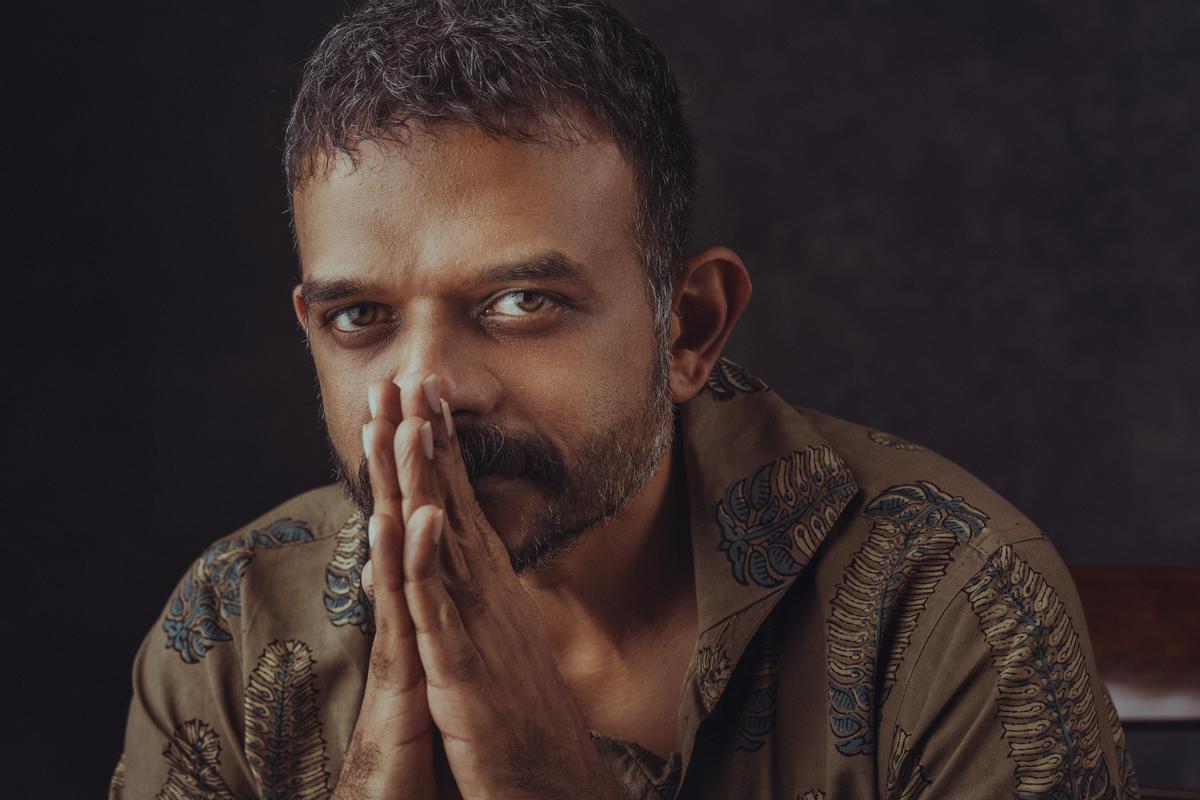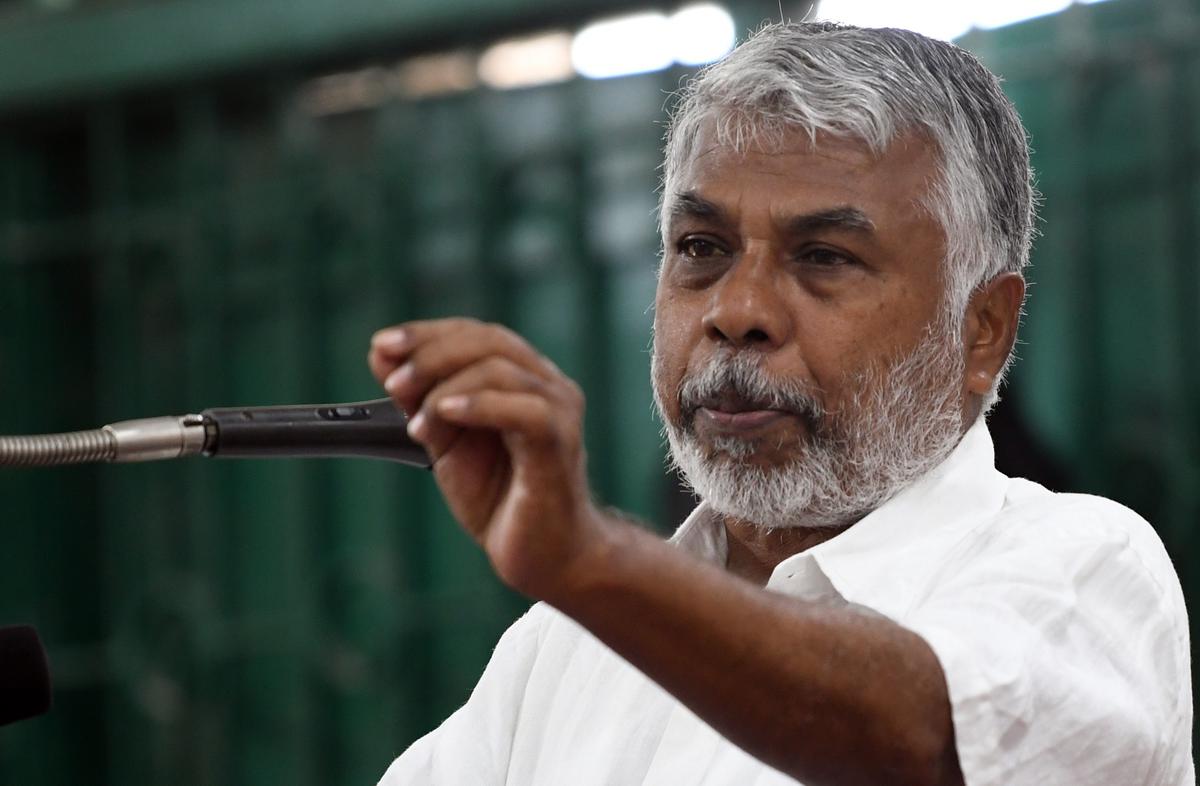Museum in memory of EV Ramaswamy (Thanthai Periyar), who was at the forefront of the Vaikom Satyagraha and received the title of Vaikom Veeran. , photo credit: Vishnu Pratap
In keeping with the spirit of Vaikom Satyagraha, which is celebrating its centenary this year, Carnatic singer TM Krishna released a composition, Sindika Chonavar Periyar, Written by author Perumal Murugan in praise of Periyar. Composed in raga Bilhari and set to a taal, the song was posted on the composer’s YouTube channel on Thursday.
TM Krishna tweeted: “Honoring Periyar with this special song along with Perumal Murugan and Pazha. Athiyaman – commemorating the centenary of Vaikom Satyagraha.”
A man walks on the road outside the Mahadeva temple complex at Vaikom in Kottayam district on Wednesday. The struggle to earn the right for people of all castes to walk on the streets around the temple, called the Vaikom Satyagraha, is celebrating its centenary in 2023. photo credit: Tulsi Kakkat
The Vaikom Satyagraha was a non-violent protest to remove restrictions that prevented ‘backward communities’ from using the road around the Vaikom Mahadeva Temple in what was then a part of erstwhile Travancore. About 30 km from Kottayam, Vaikom became a landmark in the temple entry movement in India. The Satyagraha, which began on March 30, 1924, lasted for 20 months and saw the participation of Periyar and Mahatma Gandhi, besides many eminent leaders from Kerala and India.

TM Krishna | photo credit: deepa alexander
Speaking over the phone from Chennai, Krishna says that the lyrics were written by Murugan more than a year ago. He mailed it to the singer. “I didn’t work on it for a while. Suddenly, while I was doing something else, I remembered the composition. I opened my mail and the tune popped into my head. I hummed it and it fell into place . It only required some fine-tuning. I told Murugan that I was ready to sing. He told me that we could release it on a date of some significance for the Vaikom Satyagraha. We came to know that 30 The centenary was being celebrated on March and it was released on that day.
Krishna says that much of the credit for its lyrical structure also goes to the author. The music video begins with research scholar and writer Pazha. A brief introduction to Athiyaman from the background of the composition and its essence. The author has written an official book in Tamil on Vaikom Satyagraha. “I understand there will be a Malayalam translation of the book soon. I urge people to read it to understand Periyar’s contribution to the Vaikom Satyagraha,” says Krishna.

Perumal Murugan | Photo credit: Raghunathan SR
The spirited lyrics, modeled on the lines of a marching song, begin with the lines – ‘He was the one who told us to think; Our elder Periyar’. The latter part of the song prompts the listeners to question caste discrimination, blind traditions, oppressive practices, injustice and untouchability.
Erode Venkatappa Ramasamy alias Periyar or Thanthai Periyar, was the President of the Tamil Nadu Pradesh Congress Committee at that time. He traveled to Vaikom to join peaceful protestors and was arrested twice. Krishna points out that it is wonderful to think of people like Periyar participating in a movement in support of a noble cause in a neighboring state. The lyrics of the song remind us that ‘It was Periyar who told us to think, our elder Periyar, our elder Periyar, use your intelligence to think.’
Krishna says Murugan’s creation is relevant even today, noting that it is sad that 100 years after the Vaikom Satyagraha, there are temples where Dalits are not allowed to enter, streets where they are allowed to enter No, separate cremation grounds for Dalits, eateries with separate glasses for Dalits…” Sadly, even after 100 years, the fight continues. Yes, we have moved on from those days but there is still work to be done. Nevertheless, there is a need for a cultural and emotional change in society.”
He says: “As long as we think that equality is being imposed on us by the system of democracy, equality and equity will never happen. We have to believe that equality and equality are natural and moral ways of living. There is still a long way to go in the relationship.”